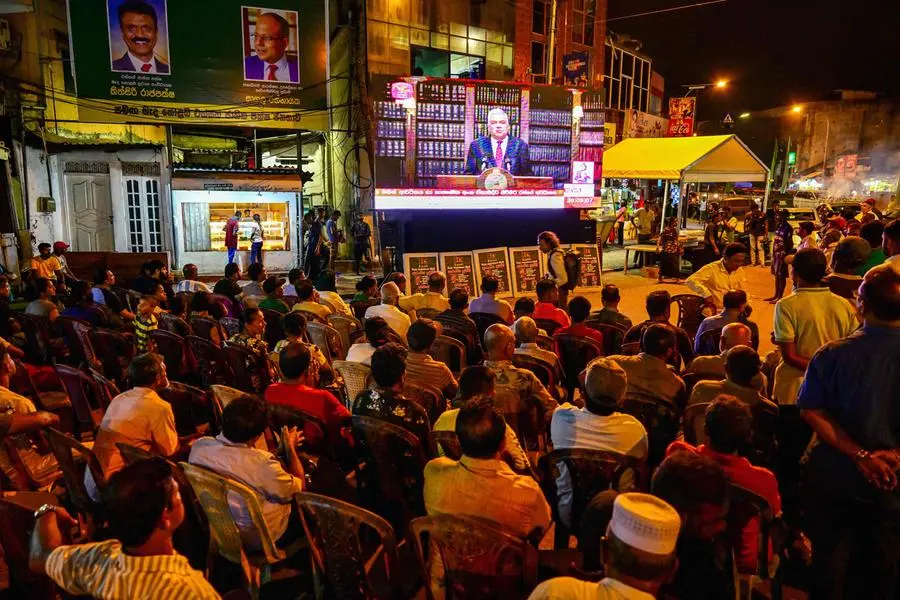PHOTO
Sri Lanka will save $5 billion following the restructuring of its bilateral debt, much of which is owed to China, through slashed interest rates and longer repayment schedules, the president said Tuesday.
The island nation defaulted on its foreign borrowings in 2022 during an unprecedented economic crisis that precipitated months of food, fuel and medicine shortages.
President Ranil Wickremesinghe said a deal struck last week had secured a moratorium on debt payments until 2028, extending the tenure of loans by eight years and cutting interest rates to an average of 2.1 percent.
Wickremesinghe said bilateral lenders led by China, the government's largest single creditor, did not agree to a reduction on their loans but the terms agreed would nonetheless help Sri Lanka.
"With the restructure measures we have agreed, we will make a saving of $5.0 billion," Wickremesinghe told parliament in his first address to the legislature since the debt deal.
Some of Sri Lanka's loans from China are at high interest rates, going up to nearly 8.0 percent compared to borrowings from Japan, the second largest lender, at less than 1.0 percent.
Sri Lanka struck separate deals with China and the rest of the bilateral creditors, including Japan, France and India.
Bilateral creditors account for 28.5 percent of Sri Lanka's outstanding foreign debt of $37 billion, according to treasury data from March. That excludes government-guaranteed external loans.
China accounts for $4.66 billion of the $10.58 billion that Sri Lanka has borrowed from other countries.
Wickremesinghe said he expected to complete shortly the restructure of a further $14.7 billion in external commercial loans, including $2.18 billion from the China Development Bank.
Japanese foreign minister Yoko Kamikawa hailed the agreement after a meeting with her visiting Sri Lankan counterpart Ali Sabry in Tokyo, according to a news release from the Japanese foreign ministry.
She said Japan would be prepared to resume lending to existing yen-loan projects once Japan confirms the Sri Lankan government's intention to work expeditiously towards the conclusion of a bilateral deal on top of the latest debt agreement.
Sri Lanka's 2022 crisis sparked months of public protests that eventually forced the resignation of then-president Gotabaya Rajapaksa after an angry mob stormed his compound.
Wickremesinghe said the nation was bankrupt when he took over and he hoped the $2.9 billion International Monetary Fund bailout he secured last year would be the island's last.
Colombo had gone to the IMF, the international lender of last resort, on 16 previous occasions and the debt restructuring is a condition of the IMF bailout.





















